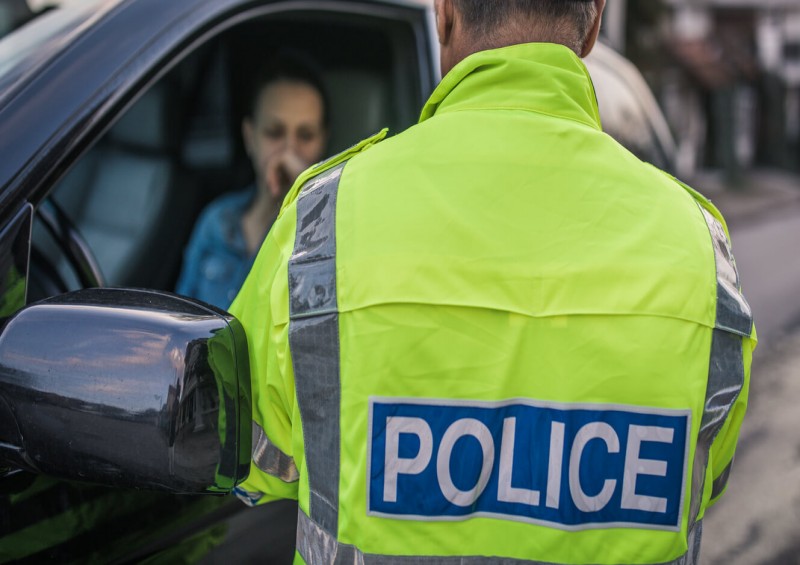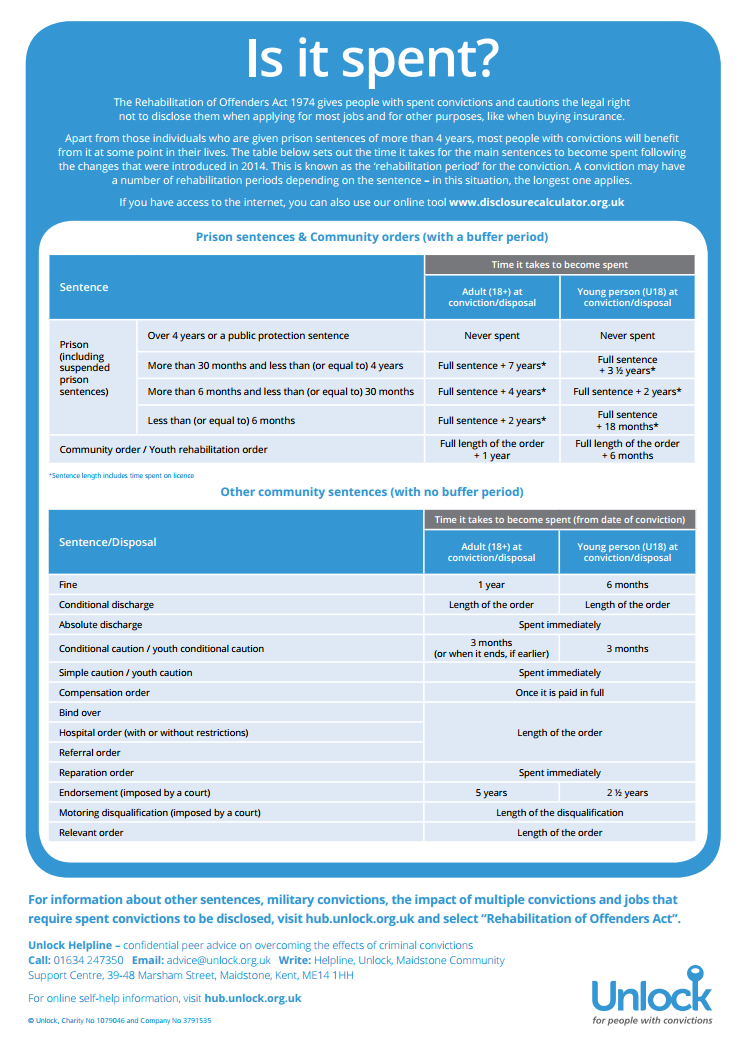What is an Unspent Conviction?

According to Unlock, an independent UK charity for people with criminal records, over 11 million people in the UK have a criminal conviction - that’s almost 17% of the UK population.
And before The Rehabilitation of Offender Act 1974 reforms in 2014, approximately 2.5 million people had 'unspent convictions', while there are now only around 735,000 people with unspent convictions.
Despite the age of the 1974 Act, many of us do not know what exactly is meant by a 'spent' or 'unspent' conviction or know the rehabilitation timeframes, so our guide is here to tell you everything you need to know.
What is an unspent conviction in the UK?
An unspent conviction refers to a criminal record that, for a specific period of time (the length of which is determined by the seriousness of the crime), can be deemed unspent and, therefore, available for disclosure to a third party who has requested a criminal record check via the Disclosure and Barring Service (DBS).
The time period stipulated for convictions is considered to be long enough for an offender to 'rehabilitate' and offers protection to rehabilitated offenders from unreasonable prejudice when applying for a job or insurance.
The difference between spent and unspent convictions
If a conviction is spent, this means a predetermined time period has elapsed since the date of the conviction, meaning that an offender is effectively rehabilitated and is no longer legally required to disclose this conviction to most prospective employers or insurers.
If you work with children or vulnerable adults, unspent convictions will still be highly relevant and must always be disclosed. Otherwise, if you have a spent conviction, you should not have to declare this to any potential employer or insurance company.
What are unspent convictions that can never be spent?
Some criminal convictions will NEVER become spent due to the seriousness of the offence. Convictions will remain unspent for offenders who have received a prison sentence of 4 years or more, regardless of the conviction.
Do insurance companies check criminal records?
No, not usually when you take a policy out or request a quote for insurance, but insurance companies do conduct a criminal record check if you make a claim on your insurance.
When you request a quote from an insurance company, most insurers will ask if you have any previous convictions. You are only required to divulge to an insurer any previous convictions if they are unspent; you do not need to disclose spent criminal convictions.
However, at a later date when you may need to make a claim on your home or car insurance policy, insurance companies will then conduct a Disclosure and Barring Service (DBS) criminal record check.
Should a DBS check reveal you have an unspent criminal conviction and you failed to disclose this to your insurer at the outset or upon renewal (known as misrepresentation), this could invalidate your car or home insurance and your insurance company may refuse your claim.
If you have driving convictions and are struggling to obtain insurance, there are specialist insurers who specifically provide convicted driver insurance.
Unspent convictions and employment
When you apply for a new job, an employer has the right to ask you to disclose any unspent criminal convictions. Employers have the right to request a criminal record check via the DBS and as stated above, if you work with children or vulnerable adults, a check will most definitely be made.
Is a fine an unspent conviction?
Yes, there are certain fines resulting from road traffic offences and codes that can result in a criminal conviction being unspent for a period of 1 year.
However, fines from Fixed Penalty Notices or Penalty Notices for Disorder are not deemed convictions and will not result in a criminal record as the 1974 Act does not apply to these types of disposals.
Is speeding an unspent conviction?
Not all speeding offences lead to a conviction if they are minor. Very often, you will be offered to attend a speed awareness course instead of having penalty points endorsed on your Licence.
For some minor offences, you may be issued with a Fixed Penalty Notice which again, if you pay in good time, will not result in a conviction.
Similar to fines, serious speeding offences (usually defined as 20 mph or more over the speed limit) can result in a criminal conviction and an endorsement on your Licence. Endorsements on a licence will remain unspent for a period of 4 to 5 years or more, depending on the seriousness of the case.
How long does it take for a conviction to be spent?
The timeframe for spent convictions can vary from as little as 3 months or sooner for a conditional caution to never being spent at all when a prison sentence term is for 4 or more years.
The following infographic sets out the time it takes for principal sentences to be spent, following the 2014 reforms to The Rehabilitation of Offenders Act:

[Source: Unlock]
How do you know if you have an unspent conviction?
The quickest and easiest way to check if you have any unspent convictions is by requesting a basic DBS check via the Government’s website.
Alternatively, if you know the date and can remember the details of your conviction(s), to find out if a conviction has been spent, you can use Unlock’s online disclosure calculator.
It is imperative you know this information before applying for car or home insurance as when you compare insurance quotes online, you will be asked to disclose any unspent criminal convictions.
If an insurer doesn’t specifically state that you only have to disclose unspent convictions, do not be fooled as you do not need to disclose convictions that have been spent, regardless of how the question is worded.
